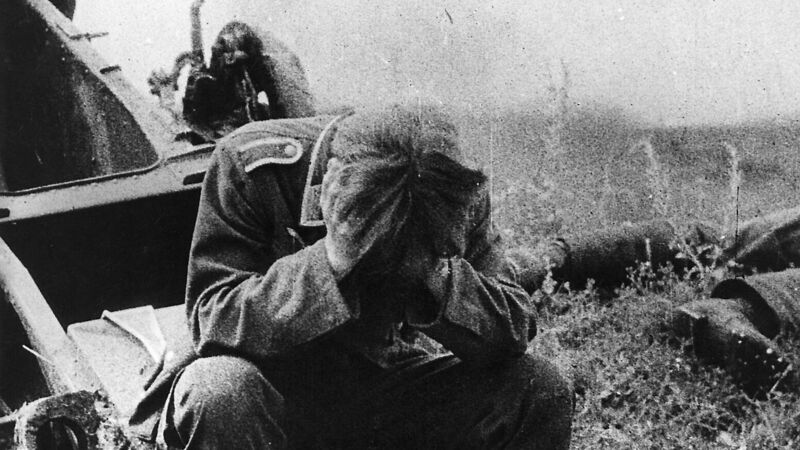New novels delve into actions of ordinary Germans during the war

In the classic, frequently referenced ‘bystander effect’ experiment of the 1960s, a subject was asked to fill out a form, but then smoke was pumped under the door.
Try from €1.50 / week
SUBSCRIBE
A German soldier after a rocket attack on the Moscow front; beside him lies a comrade’s corpse. In ‘We Germans’, by Alexander Starritt, a German soldier writes a letter about his time at war. Picture: Hulton Archive/Getty
Psychological experiments demonstrating the bystander effect come to mind when reading these two novels, We Germans, by Alexander Starritt, and The Vanishing Sky, by L Annette Binder, which grapple with the participation of ‘ordinary’ German people in the Nazi system during the Second World War.
In the classic, frequently referenced ‘bystander effect’ experiment of the 1960s, a subject was asked to fill out a form, but then smoke was pumped under the door.
Newsletter
Music, film art, culture, books and more from Munster and beyond.......curated weekly by the Irish Examiner Arts Editor.
Newsletter
Music, film art, culture, books and more from Munster and beyond.......curated weekly by the Irish Examiner Arts Editor.
© Examiner Echo Group Limited